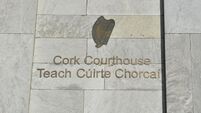Cork entertainment centre to pay €3,000 to blind boy for refusing entry to inflatable play area

Airtastic’s general manager claimed the inflatable play area was a large, constantly moving structure with uneven surfaces which is unlike a typical bouncy castle. File photo
An entertainment centre in Cork has been ordered to pay €3,000 compensation to a blind child who was refused entry to an inflatable play area during his friend’s birthday party.
The Workplace Relations Commission ruled that Airtastic Cork Limited, which operates an entertainment centre at Eastgate Retail Park, Little Island, Co Cork, discriminated against the 12-year-old boy on grounds of disability.















